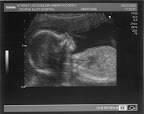"If your Eye is generous, the whole of your body will be illumined." (Mtt 6:22 Moffat Translation)
I'm back from a fantastic week at Without Borders '06. There is so much I could say, but not enough time to say it! So I thought I'd first focus on one of the small details that really spoke to me. I received so much fantastic teaching, it would take weeks to summarise it all, but this one phrase has stuck with me and already become part of me.
Have generous eyes
Jesus himself said "It is more blessed to give than to receive." And we had plenty of teaching on the importance of giving and many opportunities to give.
What struck me afresh is that giving is not something we should do because it is good, or because it is a command, or because we will reap a reward, though all those things are true. We should be givers by nature, because God himself is a giver, and generously gives to us freely and continually. As we give generously on all occasions, we are not just fulfilling the command of God, but reflecting the very nature of God himself.
Keri exhorted us to have generous eyes. To look out for opportunities to be generous. This is the reason why God wants to prosper us, not so we can have a lot, but so that we will always have something to give. So we can be generous on every occasion and so become more like the ultimate giver - God himself.
Noralv also showed us from the scriptures how "Remembering the poor" is central to the gospel. The gospel of salvation and good news to the poor are synonymous in the scriptures, and wherever in the book of Acts you see the disciples caring for the poor you also see a great harvest of salvation.
Giving is not an ancillary activity to us reaching the world with the glory of God, it is an integral part of the means!
I'm learning again to view the world, my workplace, my neighbors, the man in the street, with God's generous eyes.
I'm back from a fantastic week at Without Borders '06. There is so much I could say, but not enough time to say it! So I thought I'd first focus on one of the small details that really spoke to me. I received so much fantastic teaching, it would take weeks to summarise it all, but this one phrase has stuck with me and already become part of me.
Have generous eyes
Jesus himself said "It is more blessed to give than to receive." And we had plenty of teaching on the importance of giving and many opportunities to give.
What struck me afresh is that giving is not something we should do because it is good, or because it is a command, or because we will reap a reward, though all those things are true. We should be givers by nature, because God himself is a giver, and generously gives to us freely and continually. As we give generously on all occasions, we are not just fulfilling the command of God, but reflecting the very nature of God himself.
Keri exhorted us to have generous eyes. To look out for opportunities to be generous. This is the reason why God wants to prosper us, not so we can have a lot, but so that we will always have something to give. So we can be generous on every occasion and so become more like the ultimate giver - God himself.
Noralv also showed us from the scriptures how "Remembering the poor" is central to the gospel. The gospel of salvation and good news to the poor are synonymous in the scriptures, and wherever in the book of Acts you see the disciples caring for the poor you also see a great harvest of salvation.
Giving is not an ancillary activity to us reaching the world with the glory of God, it is an integral part of the means!
I'm learning again to view the world, my workplace, my neighbors, the man in the street, with God's generous eyes.


 For you formed my inward parts; you knitted me together in my mother's womb. I praise you, for I am fearfully and wonderfully made. Wonderful are your works; my soul knows it very well. (Ps 139:13-14 ESV)
For you formed my inward parts; you knitted me together in my mother's womb. I praise you, for I am fearfully and wonderfully made. Wonderful are your works; my soul knows it very well. (Ps 139:13-14 ESV)